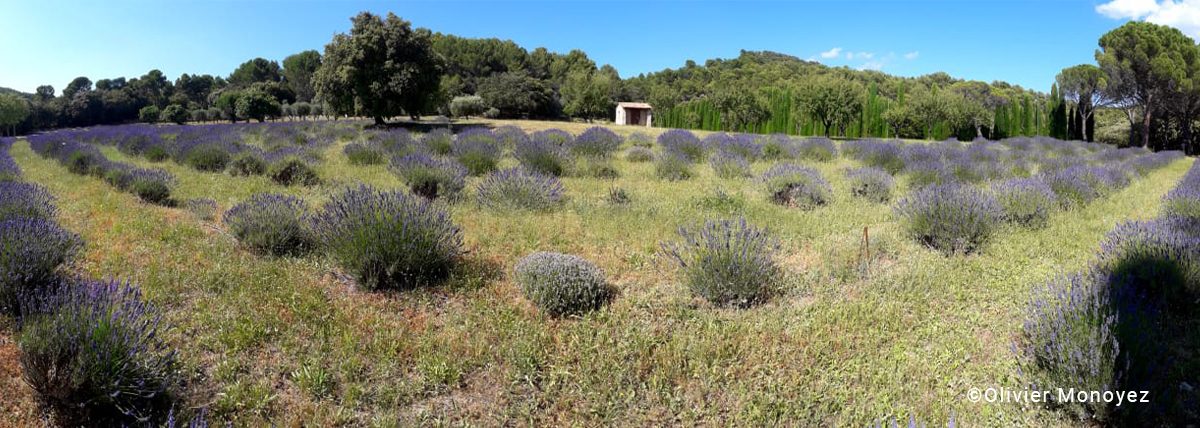
September 2023
Agenda
Seminars and residential studies
Tumor Heterogeneity – Seminar organized by Patrick Mehlen from August 28 to September 2.
Cancer is a complex disease characterized by uncontrolled and abnormal growth of cells in the body. While the initial vision was that of a clonality of cancer cells, we now know that each tumor is composed of different subpopulations of cells which can present genetic, epigenetic and phenotypic variations. This concept of tumor heterogeneity has important implications for the diagnosis, treatment and understanding of cancer. It thus seems to be essential in resistance to treatments. Recent technological advances such as genomic sequencing and single-cell analysis allow researchers to better understand it. This seminar will bring together an exceptional panel of researchers and doctor-researchers specializing in oncology and pioneers in the study of tumor heterogeneity. The objective is to better understand the molecular and cellular bases of heterogeneity in order to propose new therapies aimed at limiting it, and through this, slowing down the progression of the disease.
Oriental Christians and the Republic of Letters (16th-18th centuries) – Large group residential study organized by Vassa Kontouma from September 11 to 16.
Focusing on the literate exchanges of Orthodox Christians or Catholics of the Eastern Rite, between them or with their Western interlocutors (Catholics and Protestants), this project extends over geopolitical spaces (Russian Empire, Ottoman Empire, Near East, Western Europe) and linguistic areas (Slavic, Greek, Arabic, Latin, Romanian) which have until recently been the subject of segmented research, particularly at the level of the study of original sources. Because of the scientific compartmentalization between Hellenists, Slavists and Orientalists (Armenologists, Arabists, Syriacists), but also the great disparity of geopolitical situations, the comparative and crossed approach has very little been adopted until now. This seminar aims to change that.
Expertise in climate litigation: production, use and reception – Seminar organized by Sandrine Maljean-Dubois from September 25 to 30.
This seminar focuses on societal issues related to climate change. The Covid-19 pandemic has brought to light new challenges – the same as in climatology – to strengthen the interface between expertise and political decision-making, to improve scientific communication, and more particularly to develop reliable and independent data, away from the existing controversies. The aim is to shed light on the legal strategies of NGOs when they use justice and the law as weapons against climate change, and on those of the defendants in response (often States and companies), to decipher the uses of different sources of expertise, to highlight, through a comparative analysis, the process of passing from scientific truth to legal truth, to identify opportunities and to strengthen the interface between scientists and political decision-makers in matters of climate in a context of climate emergency.
Writing the biography of Michel Serres – Residential study organized by François Dosse from September 11 to 16.
The richness of Michel Serres’ work, his contribution to enlightening our present time, the multiplicity of his curiosities, the extent of his knowledge and his encyclopedic ambition, like his former master Leibniz, deserve an intellectual biography. In F. Dosse’s book published by Gallimard in 2018, “The saga of French intellectuals 1944-1989”, the author admits that he has not really done him justice. So he intends to do so with this biography.
The Brains that pull the Trigger – Residential study trip organized by Itzhak Fried from September 25th to October 7th.
The transformation of previously non-violent groups of individuals into serial killers has been a recurring phenomenon throughout history. This apparent transition from large numbers of seemingly normal and “ordinary” individuals to the perpetrators of extreme atrocities is one of the most striking variants of human behavior, yet often seems incomprehensible. This transition is characterized by a set of symptoms and signs for which a common syndrome, Syndrome E, has been proposed (Fried, Lancet, 1997). This project aims to synthesize the development of the E syndrome hypothesis and its relevance for current and future societies, integrating new information that has emerged in recent years in the fields of neuroscience and artificial intelligence.
Creation
Author’s residency
Carine Fernandez
Carine Fernandez was born in the Lyon region from a Spanish Republican father, a political refugee. In her turn, she will see her journey take place under the sign of exile in Egypt, Lebanon, Saudi Arabia and the United States. After studying literature, she became passionate about research and defended two theses in literature. Back in France, she has devoted herself to writing and written and published several novels, while remaining attached to the poetry that infuses her texts. During her residency, she sets out to retrace the life of Léandro Urbine de Piedraescrita, a Castilian adventurer who roamed Europe amidst the ideological and political upheavals of the Revolution and the Empire. [En savoir plus]
Photography Prize
Eric Bouvet
Eric Bouvet has covered the biggest world events of the last 40 years, in 140 countries and for the biggest magazines. Since 2011, he has also produced documentary projects. His project focuses on these places of passage for traders, migrants, diplomats, soldiers, tourists and sportsmen : the Franco-Italian border passes that have shaped history so much. Important strategic and geopolitical stakes, they mark a border with an eventful layout.
Exhibitions
Rouault’s Miserere
The Abbey of La Celle (Var) is home to Georges Rouault’s “Miserere”, a set of 58 engravings of exceptional quality, belonging to the collection of the Treilles Foundation. They were engraved from 1917 to 1927 by one of the most important representatives of sacred art of the 20th century. Exhibition visible until September 17, 2023.
Applications call
Application forms are still open for:
the 2024 season
– the Photography Prize (until October 1)
– the Escourbiac – Fondation des Treilles Prize (until October 1)
– the Musical Composition Prize (until October 1)
– Small residential studies (until September 15)
– the Young Researcher Prize (until October 31)
the 2025 season
– seminars (until September 15)
– large residential studies (until September 15)
